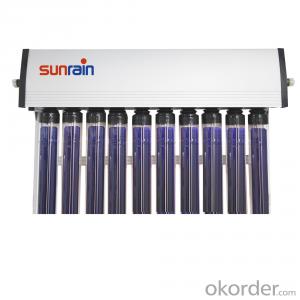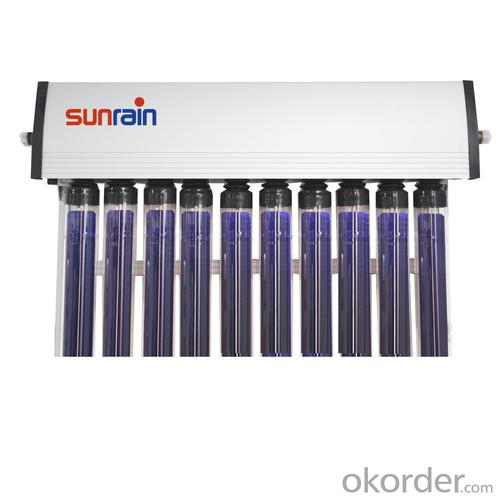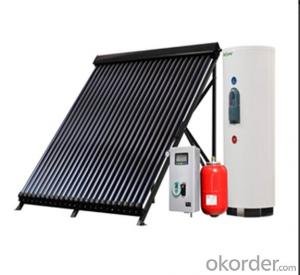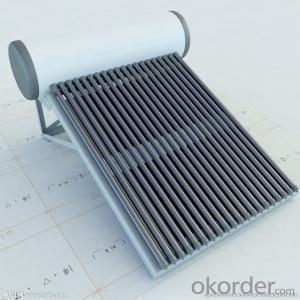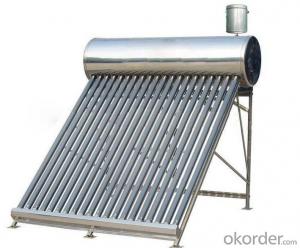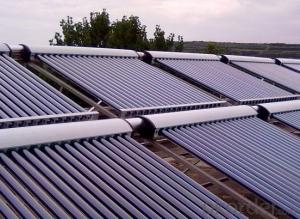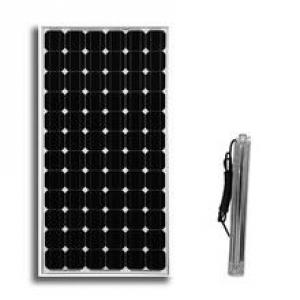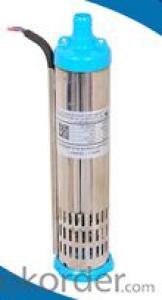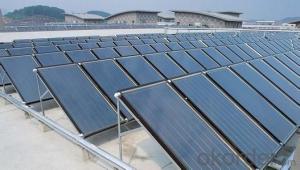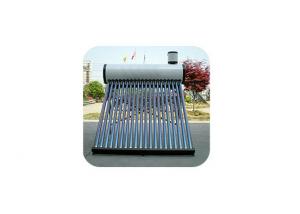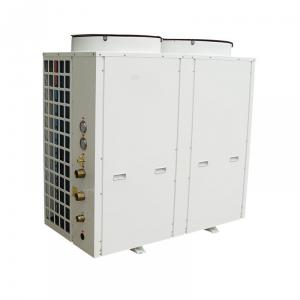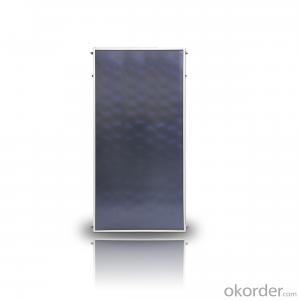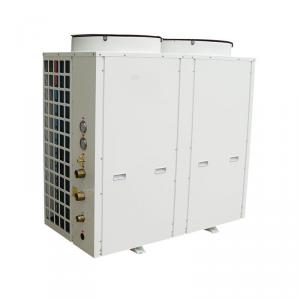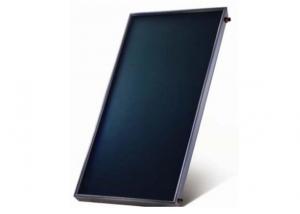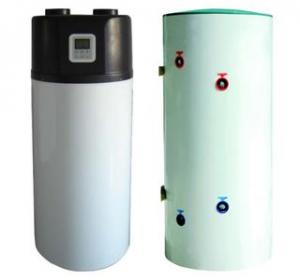Rheem Solar Domestic Series Heat Pump
- Loading Port:
- China Main Port
- Payment Terms:
- TT OR LC
- Min Order Qty:
- -
- Supply Capability:
- -
OKorder Service Pledge
Quality Product, Order Online Tracking, Timely Delivery
OKorder Financial Service
Credit Rating, Credit Services, Credit Purchasing
You Might Also Like
| Type | Circulation heating/Domestic |
| Heating Capacity | 3.5kw~8.7kw |
| COP | ≥3.7 |
| Rated water temp. | 55℃ |
| Running ambient temp. | -7~43℃ |
| Compressor | Rotary |
| Refrigerant | R410a |
| Power supply | 220~/50/1 |
| Certification | CE, CB, SABS |
Features
GMCC Compressor.
Evaporator is larger than usual size to keep its high efficiency.
Water pressure reaches 0.6Mpa-0.9Mpa.
Refrigerant R410A.
Full automatically start up and stop with setup temperature.
Small space and easy install&maintain.
- Q: How does the material of the storage tank affect the performance of a solar water heater?
- The material of the storage tank in a solar water heater can significantly affect its performance. The choice of material determines factors such as heat transfer efficiency, durability, and resistance to corrosion. Materials with good thermal conductivity, such as copper or stainless steel, can enhance heat transfer from the solar collectors to the water, resulting in faster and more efficient water heating. Additionally, selecting a durable and corrosion-resistant material ensures the longevity of the storage tank, minimizing maintenance needs and improving overall performance.
- Q: Solar water heater should be simple to work about twenty words
- The vacuum tube is the core of the solar water heater, his structure is like an elongated thermos bottle container, vacuum between the inner and outer layers. The surface of the inner glass tube is coated with a selective absorption coating by a special process to absorb the solar radiation energy. By sunlight, the photon impact coating, solar energy into heat energy, water absorption from the outside of the coating, the water temperature increases, the density decreases, hot water upward movement
- Q: Can a solar water heater be used in areas with high levels of noise pollution?
- Yes, a solar water heater can be used in areas with high levels of noise pollution. Noise pollution does not impact the functionality or efficiency of a solar water heater, as it relies solely on sunlight to heat the water. Therefore, noise levels in the surrounding area do not affect its performance.
- Q: How does a solar water heater affect water heater maintenance requirements?
- A solar water heater can significantly reduce water heater maintenance requirements. Since solar water heaters use the sun's energy to heat water, they have fewer mechanical components compared to traditional water heaters. This means there are fewer parts that can malfunction or require regular maintenance. Additionally, solar water heaters often have a longer lifespan compared to conventional models, reducing the need for frequent replacements or repairs. Overall, the maintenance requirements for a solar water heater are generally lower, resulting in cost savings and less hassle for homeowners.
- Q: What are the components of a solar water heating system?
- The components of a solar water heating system typically include solar collectors, a heat transfer fluid, a storage tank, a backup heating system, and a control system.
- Q: How does the installation time of a solar water heater compare to a traditional water heating system?
- The installation time of a solar water heater is generally longer than that of a traditional water heating system. This is because a solar water heater requires additional components such as solar panels, a storage tank, and a controller, which need to be properly installed and connected. Additionally, the positioning of the solar panels and the integration with the existing plumbing system may require more time and expertise. However, despite the longer installation time, a solar water heater offers long-term cost savings and environmental benefits, making it a worthwhile investment.
- Q: Can a solar water heater be used in commercial buildings?
- Yes, a solar water heater can be used in commercial buildings. In fact, many commercial buildings are increasingly adopting solar water heating systems as an eco-friendly and cost-effective alternative to traditional water heaters. Solar water heaters utilize the sun's energy to heat water, reducing the reliance on fossil fuels and lowering utility bills. This renewable energy solution is suitable for various commercial applications, including hotels, restaurants, hospitals, and office buildings, providing an efficient and sustainable way to meet hot water demands.
- Q: What is the recommended angle for installing solar collectors in a solar water heater?
- The recommended angle for installing solar collectors in a solar water heater is typically between 30 to 45 degrees, depending on the geographical location. This allows for optimal sunlight absorption and efficiency in heating water.
- Q: What is the role of the solar water heater's reflector
- Solar vacuum heat collection tube, because of installation, sealing and other reasons. It can not be arranged closely
- Q: Make a comparison between two brands of mulberry and Chery
- Second, liner thickness. The quality of the liner determines the life of the water heater, if the water tank, the water heater will be scrapped. Major brand manufacturers use thickness of not less than 0.5mm of SUS304 food grade stainless steel liner. Argon arc welding is adopted to ensure the service life can reach more than 15 years. Other brands of water heaters in the liner between 0.2mm-0.4mm, the use of a period of time there will be water leakage problem. Therefore, consumers in the purchase of products must ask the thickness of the liner. At the same time, but also beware of patch water tank, the water tank liner is made up of a number of scrap steel belt, the entire inner bladder welding as many as dozens of times. Such a water tank, not only poor quality, but also may cause damage to the health of consumers with bacteria.
Send your message to us
Rheem Solar Domestic Series Heat Pump
- Loading Port:
- China Main Port
- Payment Terms:
- TT OR LC
- Min Order Qty:
- -
- Supply Capability:
- -
OKorder Service Pledge
Quality Product, Order Online Tracking, Timely Delivery
OKorder Financial Service
Credit Rating, Credit Services, Credit Purchasing
Similar products
Hot products
Hot Searches
Related keywords
